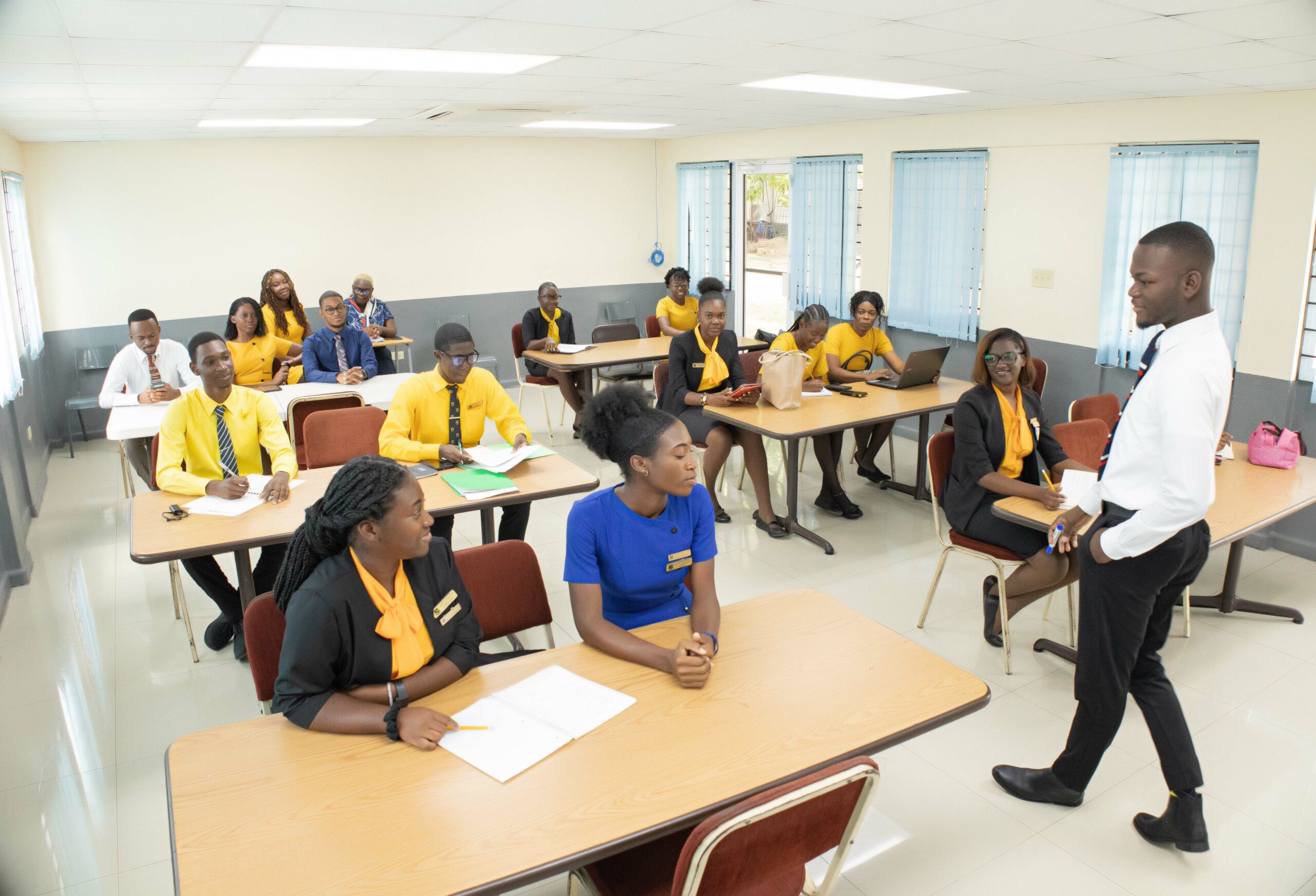Reflective Practicum: In-School Immersion Part A represents the second phase of practicum at the University College. In order to participate in this phase, student-teachers must have successfully completed its prerequisite – Reflective Practicum: Focused Observation. Reflective Practicum: In-School Immersion Part A takes place during Semester 1 of Year 3. Students are provided with the opportunity to develop the skills and quality of the reflective teacher through field experience in a selected work-based school context in their area of specialization.
This phase is facilitated by each department at the University and provides students with the opportunity to carefully examine the philosophy, goals and teaching /learning experiences specified within curriculum guides designed for their area of specialization. Students are required to apply relevant theoretical principles to plan, implement and evaluate units and lessons within the classroom.
The student teacher goes beyond personal reflection to a more organized/public reflection which includes:
Reflective Practicum: In-School Immersion Part A lasts for 13 weeks (75 hours) with in-house facilitation sessions totalling 30 hours followed by 2 weeks of fieldwork – team teaching and integration into the school community (totalling 45 hours). The phase promotes student-teacher engagement in ongoing reflection as a fundamental area of focus.
From analyzing curriculum documents to developing student profiles, from preparing instructional materials to learning resources, phase 2 allows student teachers to use a reflective approach to translate from theory to practical processes. This is done while developing professional learning communities and participating in those essential micro-teaching exercises to develop and hone their skills for successful integration into school culture for 2 weeks as they are provided with authentic experiences to develop learning communities and reflective portfolios. Preparation of this is done through micro-teaching exercises and by preparing instructional resources before engaging in the two-week team teaching field activity.
With all hands on deck, students can be assured that sufficient support will be given to aid a smooth phase. Support will be provided by course facilitators, course coordinators, the Practicum Unit, Supervisors, Cooperating Teachers, PLCs and peers.
In terms of the assessment framework at this level, student-teachers are graded in 4 main areas:
Students who are successful in these assessments in Part A of Reflective Practicum: In-School Immersion, will attain 3 credits to progress into Part B or phase 3 of the practicum.

Start your Reflective Practicum journey by clicking apply here.